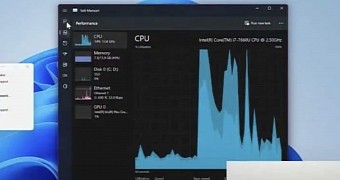The updated Windows 11 system requirements have caused plenty of controversy when Microsoft announced the operating system, but now it looks like the company is about to unwittingly fuel the whole thing.
Claton Hendricks, a Program Manager at Microsoft, has recently demonstrated Task Manager improvements during a Windows Insider podcast on YouTube.
As many long-time Windows users know, the Task Manager also reveals the system requirements, including the processor, and in the case of Hendricks, the CPU is not among those who are officially supported by Windows 11.
As reported by Digital Trends, the device in question runs on an Intel Core i7-7660 processor that’s not listed as eligible for the upgrade to Windows 11 – as a matter of fact, it’s still possible to deploy Windows 11 on an unsupported device, but Microsoft strongly recommends against it.
Microsoft: Don’t do it
Microsoft originally explained that installing Windows 11 on unsupported hardware comes with an increased likelihood of problems.
The company shared data from the Windows Insider program to prove that skipping the blocks to move to Windows 11 could seriously affect the experience and the performance of the operating system.
“The processors supported on Windows 11 are within OEM and IHV support and use modern (DCH) drivers. The move to modern drivers enables drivers and associated software to be installed and serviced in a coordinated manner through Windows Update and provides better mechanisms for tracking driver health. The result of this coordination is that system drivers are properly installed and functional after updates, providing a reliable experience when upgraded to Windows 11,” Microsoft originally said.
“From Windows Insider machines, those that did not meet the minimum system requirements had 52% more kernel mode crashes (blue screens) than those that did meet the requirements. Machines that met the requirements provided a 99.8% crash-free experience that is effectively managed by OEMs and IHVs through modern driver update management. Additionally, on unsupported hardware app hangs are 17% more likely and for first-party apps we see 43% more crashes.”

 14 DAY TRIAL //
14 DAY TRIAL //